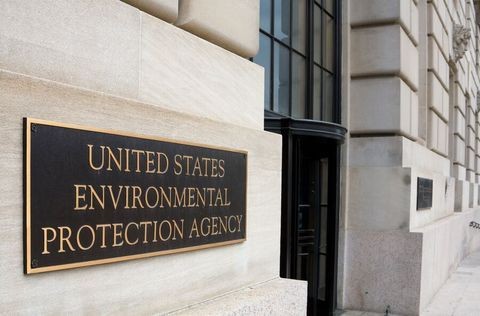Shennie Patel
Overview
Shennie Patel works in Crowell & Moring’s Environment and Natural Resources Group, focusing on enforcement and investigations and offering clients robust representation in both civil and criminal matters. With over 20 years of federal investigation and prosecution experience, Shennie brings valuable insight to her clients. During her federal career, which included 14 years in the DOJ’s Environmental Crimes Section, she managed multiagency teams and prosecuted a wide array of complex federal laws, primarily covering environmental and white collar crimes. She handled cases nationwide and internationally and was entrusted with full case management, covering motions practice, trial strategy, plea agreements, and sentencing, as well as supervision of hundreds of search warrants.
Career & Education
- Department of Justice
Trial Attorney, Environmental Crimes Section, 2009–2023
Special Assistant U.S. Attorney, Major Crimes, U.S. Attorney’s Office for the District of Maryland, 2008–2009
Attorney-Advisor, Office of Intelligence, National Security Division, 2005–2008
Trial Attorney, Special Litigation and Housing Sections, Civil Rights Division, 2002–2005 - U.S. Office of Special Counsel
Attorney, 2001–2002
- Department of Justice
- Associate, Federal Litigation- Cotton, Bledsoe, Tighe & Dawson P.C., 1998–2000
- University of Houston, B.A., cum laude, sociology/anthropology, 1991
- University of Houston Law Center, J.D., Recipient, Dean’s Scholarship, 1996
- District of Columbia
- Texas (Inactive)
- Law Clerk to Judge Lucius D. Bunton, III, U.S. District Court for the Western District of Texas, 1998
Professional Activities and Memberships
- American Bar Association, Environment, Energy & Resources Section
- District of Columbia Bar Association
- Texas Bar Association
I pride myself on being able to demystify the environmental enforcement process, criminal or civil, for non-prosecutors, and I look forward to working with clients so they understand what agency investigators and prosecutors are looking for, and how to handle negotiations with the government. Crowell offers a great opportunity to bring my public service experience to the table and make sure clients are prepared.
— Shennie Patel
Shennie's Insights
Publication | 01.15.26
Client Alert | 4 min read | 12.10.25
Federal Court Strikes Down Interior Order Suspending Wind Energy Development
Client Alert | 6 min read | 11.03.25
ICE Is Suddenly At The Door: How Retailers, Hospitals, And Hotels Can Survive The Surprise Visitor
Client Alert | 1 min read | 10.03.25
Representative Matters
- Advising major international wildlife and plant trade Fortune 500 companies in the strategic management of potential liabilities, including in connection with supply chain and regulatory compliance matters as well as customs enforcement actions and investigations.
- Serving as federal environmental regulatory counsel to a North America trade association whose members are regulated primarily under USDA’s Animal and Plant Health Inspection Service (APHIS) and USFWS.
- Advising major metropolitan city utility company in responding to potential “take” violations under the MBTA and recommending proactive maintenance steps to prevent future issues.
- Advising companies regarding mandatory disclosure obligations under USFWS and USDA regulations and related reporting processes.
- Counseling client and assisting with responses to USDA-APHIS Emergency Action Notice, resulting in positive resolution with the agency without any penalties or license revocations.
- Represented a senior executive during an EPA witness interview in connection with a federal fraud and environmental dumping investigation.
- Represented employees of a global supplier of specialty chemicals in connection with federal environmental investigation, including during separate witness interviews with the FBI and EPA.
- Worked with the State Department and DOJ, traveling around the United States and overseas teaching courses covering case evaluation, investigation, and prosecution of environmental and organized crimes.
- Prosecuted international wildlife smuggling ring under Lacey Act, ESA, and tax evasion charges.
- Prosecuted recycling company for environmental contamination in connection with polychlorinated biphenyls (PCB) as well as false statement and tax evasion, securing over $21 million for cleanup costs associated with the contamination.
- Served as a member of the U.S. delegation at the CITES Conferences of the Parties in South Africa (2016) and Qatar (2010), covering international law enforcement issues.
Shennie's Insights
Publication | 01.15.26
Client Alert | 4 min read | 12.10.25
Federal Court Strikes Down Interior Order Suspending Wind Energy Development
Client Alert | 6 min read | 11.03.25
ICE Is Suddenly At The Door: How Retailers, Hospitals, And Hotels Can Survive The Surprise Visitor
Client Alert | 1 min read | 10.03.25
Recognition
- U.S. Environmental Protection Agency, Bronze Medal for Commendable Service, 2014
- U.S. Attorney General’s Office, Special Achievement and Outstanding Performance Awards (multiple years)
Clerkship
- Law Clerk to Judge Lucius D. Bunton, III, U.S. District Court for the Western District of Texas, 1996-1998
Shennie's Insights
Publication | 01.15.26
Client Alert | 4 min read | 12.10.25
Federal Court Strikes Down Interior Order Suspending Wind Energy Development
Client Alert | 6 min read | 11.03.25
ICE Is Suddenly At The Door: How Retailers, Hospitals, And Hotels Can Survive The Surprise Visitor
Client Alert | 1 min read | 10.03.25
Insights
Despite ‘Gaps,’ Lawyers Say OECA Policy Could Boost Criminal Cases
|05.09.24
InsideEPA (subscription required)
Environmental Justice Is Alive And Well At The State Level
|08.28.25
Crowell & Moring’s State AG Blog
- |
08.26.25
Crowell & Moring’s Retail & Consumer Products Law Observer
Practices
- Investigations
- Environment and Natural Resources
- Litigation and Trial
- Endangered Species and Wildlife Protection
- Environmental Contamination
- International Trade
- Regulatory Litigation
- Environmental Justice
- Government Contracts Investigations
- White Collar and Regulatory Enforcement
- Criminal and Investigations Tax
- Infrastructure
Industries
Shennie's Insights
Publication | 01.15.26
Client Alert | 4 min read | 12.10.25
Federal Court Strikes Down Interior Order Suspending Wind Energy Development
Client Alert | 6 min read | 11.03.25
ICE Is Suddenly At The Door: How Retailers, Hospitals, And Hotels Can Survive The Surprise Visitor
Client Alert | 1 min read | 10.03.25






